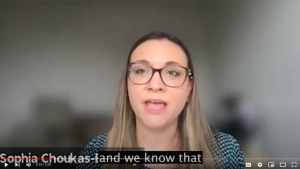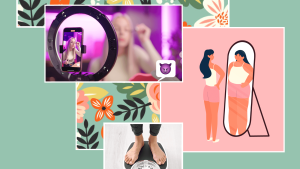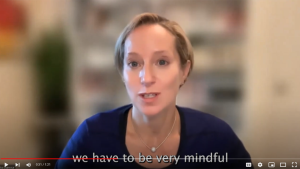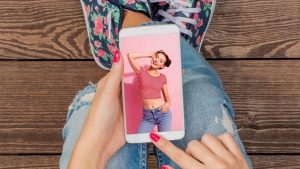
Sophia Choukas-Bradley, PhD (Assistant Professor of Psychology, Director, Teen and Young Adult Lab, University of Pittsburgh), discusses the limits of awareness and possible additional approaches for effective behavioral change around social media’s impacts on girls’ body image at the #AskTheExperts webinar “Mirror, Mirror, in My Palm: Girls and Media” on September 7, 2022.
[Dr. Choukas-Bradley] Awareness is part of the answer, but unfortunately not the whole solution. We have decades of research on mass media influences, on adult women’s body image, and we know that even when adult women with fully developed brains and decades of experience looking at media images are fully, cognitively aware that an image has been Photoshopped and is not real, exposure to those mass media images still leads immediately to decreases in body image. So when you think about social media and how it can be really hard to tell when something is real or fake because everyday people, adolescent girls and people of all genders and ages have access to apps that can allow them to dramatically change their bodies, but in ways that are not immediately detectable, according to research that’s been done in the Netherlands. And when you think about the adolescent developmental period and how susceptible adolescents are to peer influences and how their brains aren’t finished developing, and we are trying to understand how we can use evidence-based principles from clinical psychology, as well as principles from educational psychology to bring in different aspects of behavioral change and values-alignment, approaches beyond just raising awareness, although that is one really important piece.
View the Full Webinar

Mirror, Mirror, in My Palm: Girls and Media
How does online media affect girls' mental and physical health as they navigate through the increasingly tricky waters of social media and digital interactions?
Elizabeth Englander, PhD
Executive Director and Founder; Professor of Psychology
Lisa Damour, PhD
Psychologist, Author
Meenakshi Gigi Durham, PhD
Professor and Collegiate Scholar,
Sophia Choukas-Bradley, PhD
Assistant Professor of Psychology; Director,
Lanice Avery, PhD
Assistant Professor of Psychology and Women, Gender, and Sexuality Studies; Director


